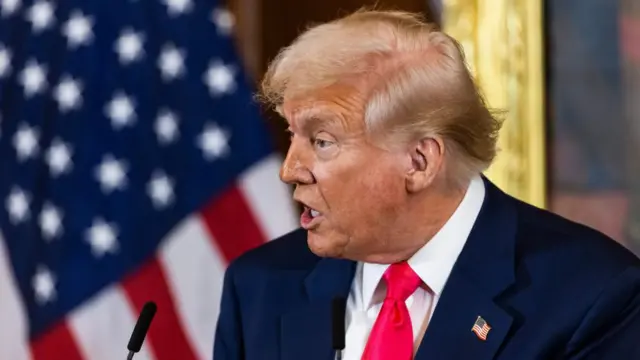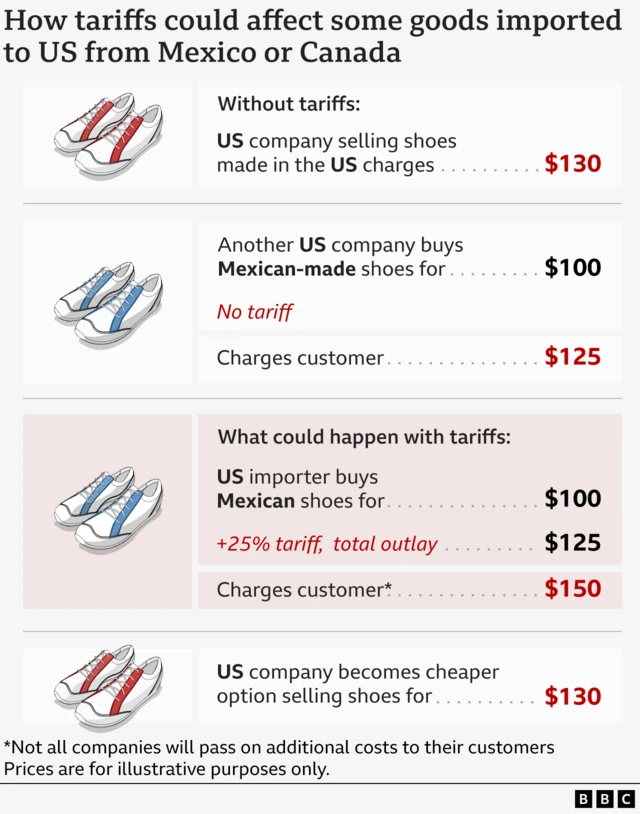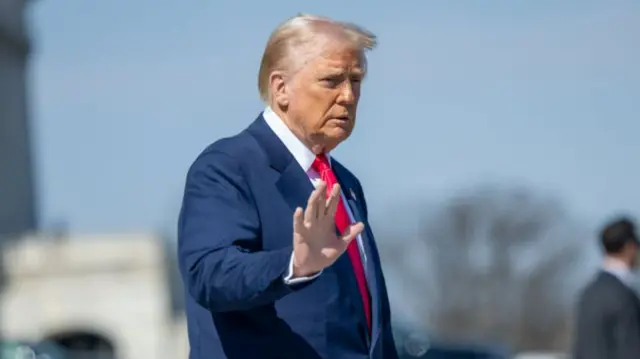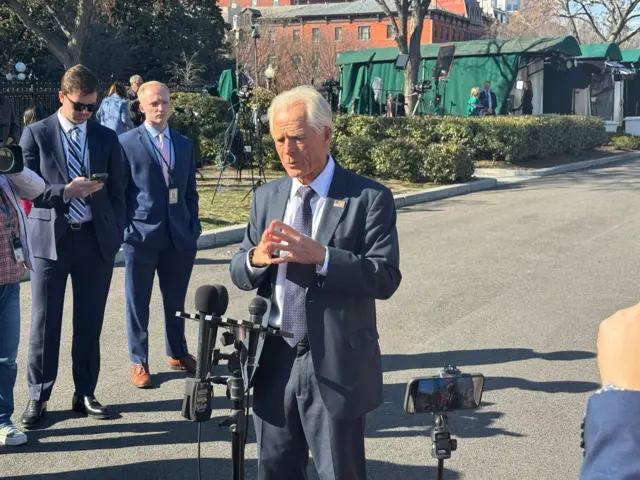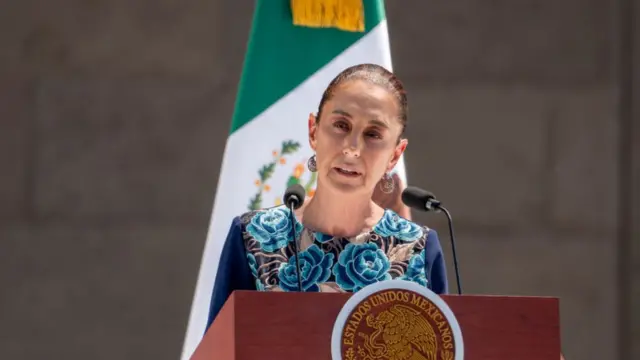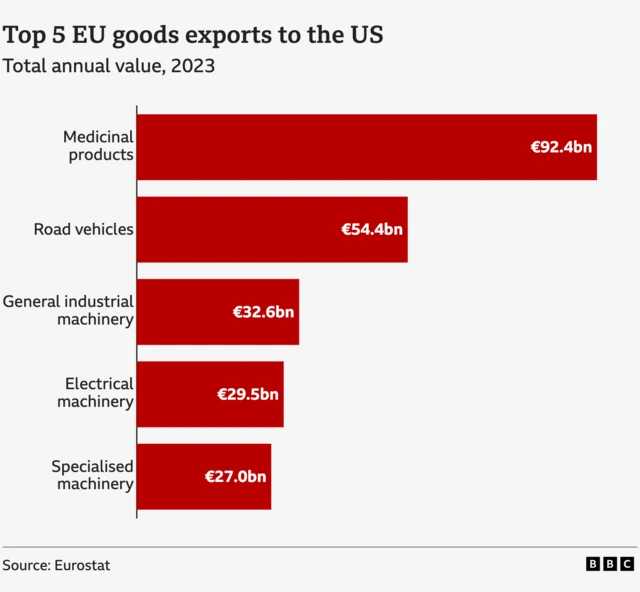Watch: What is a tariff? The BBC's Adam Fleming explainspublished at 13:55 GMT 13 March
The word tariff has dominated headlines all week. So let's take a moment to unpack what tariffs are.
Essentially, tariffs are taxes charged on goods imported from other countries.
It is the company bringing the foreign goods into the country that pays the tax to the government, and firms may choose to pass on some or all of the costs to customers.
Here's our colleague Adam Fleming to take you through the rest:
Watch: What is a tariff? The BBC's Adam Fleming explains
